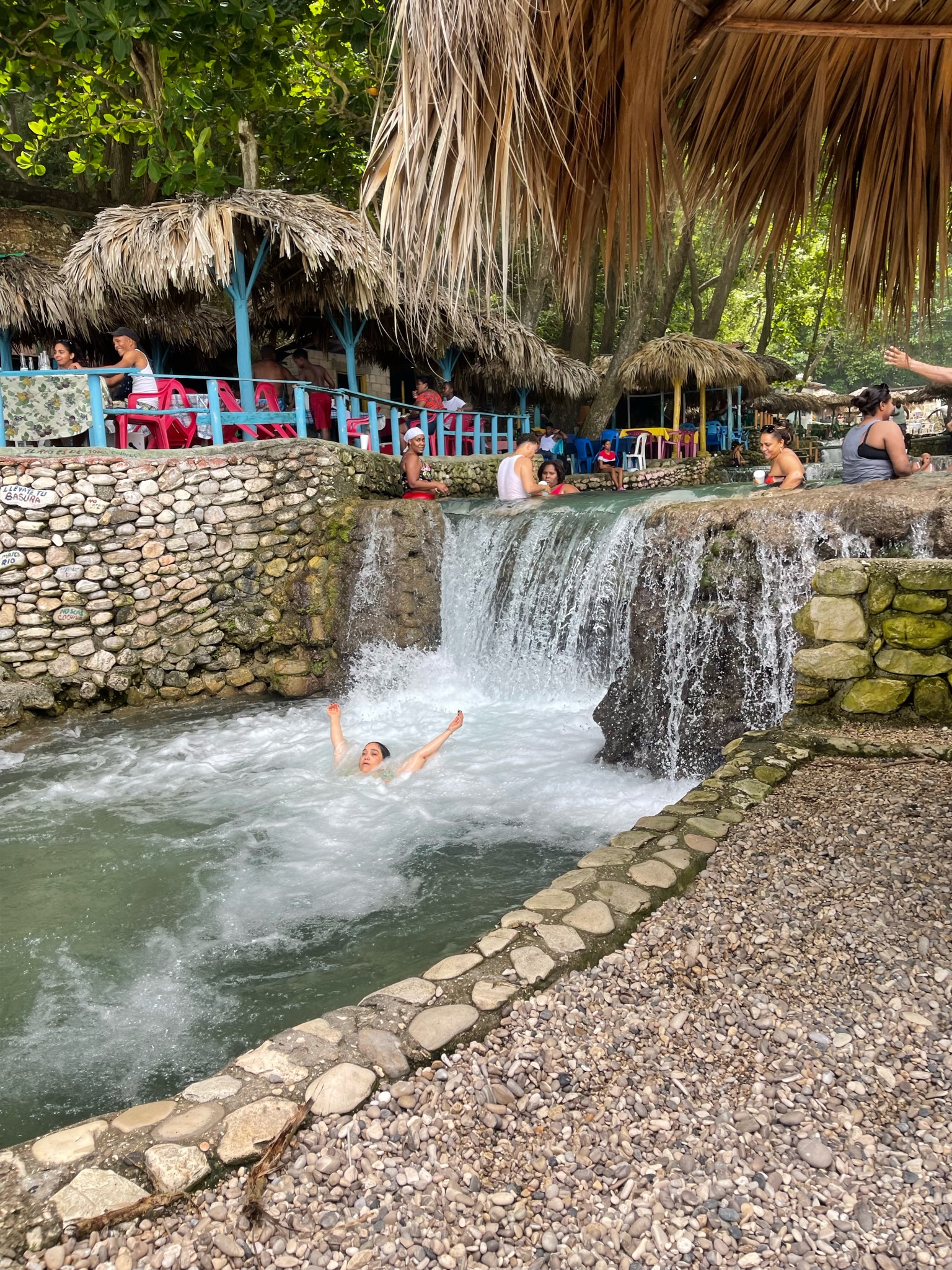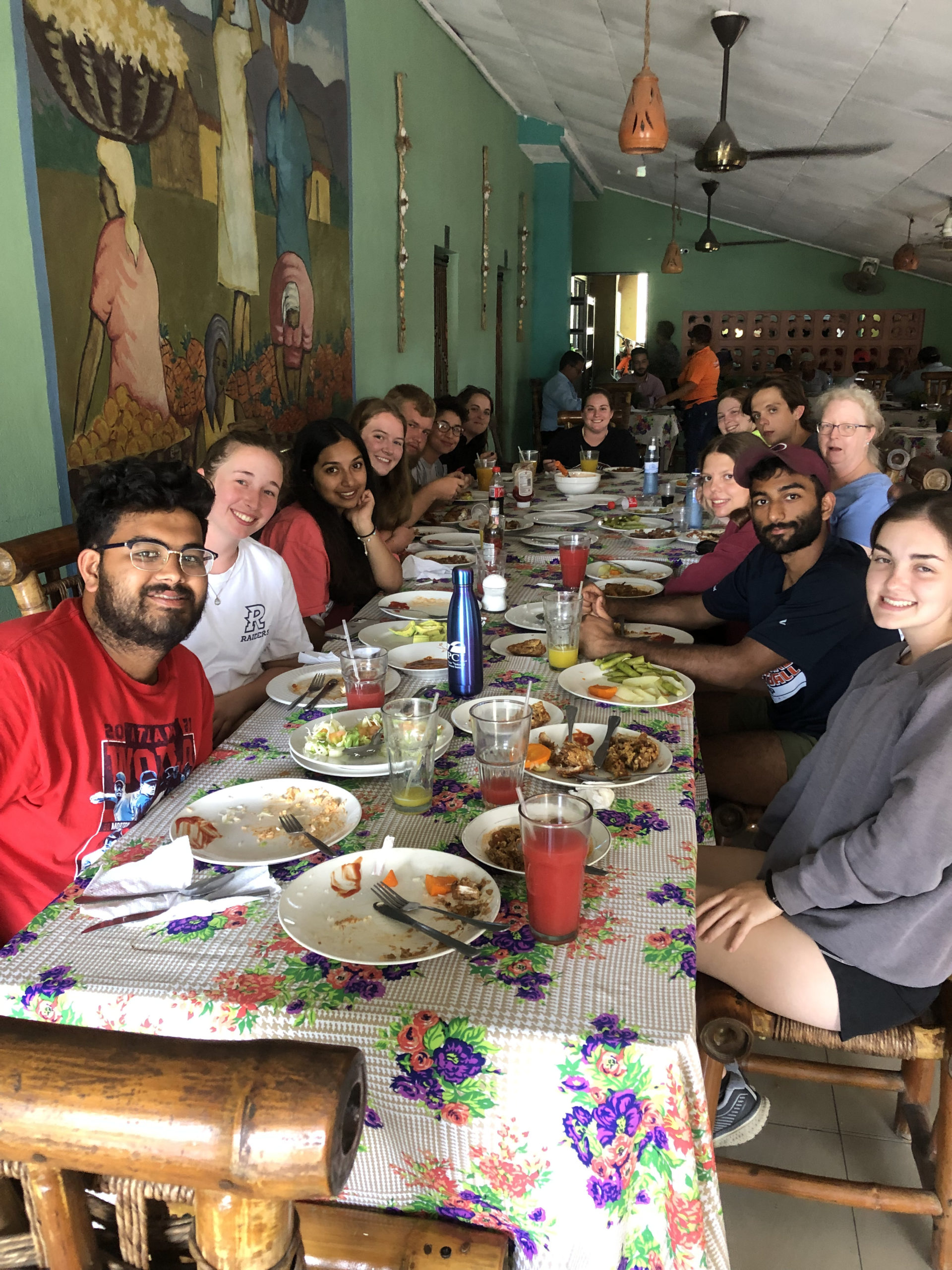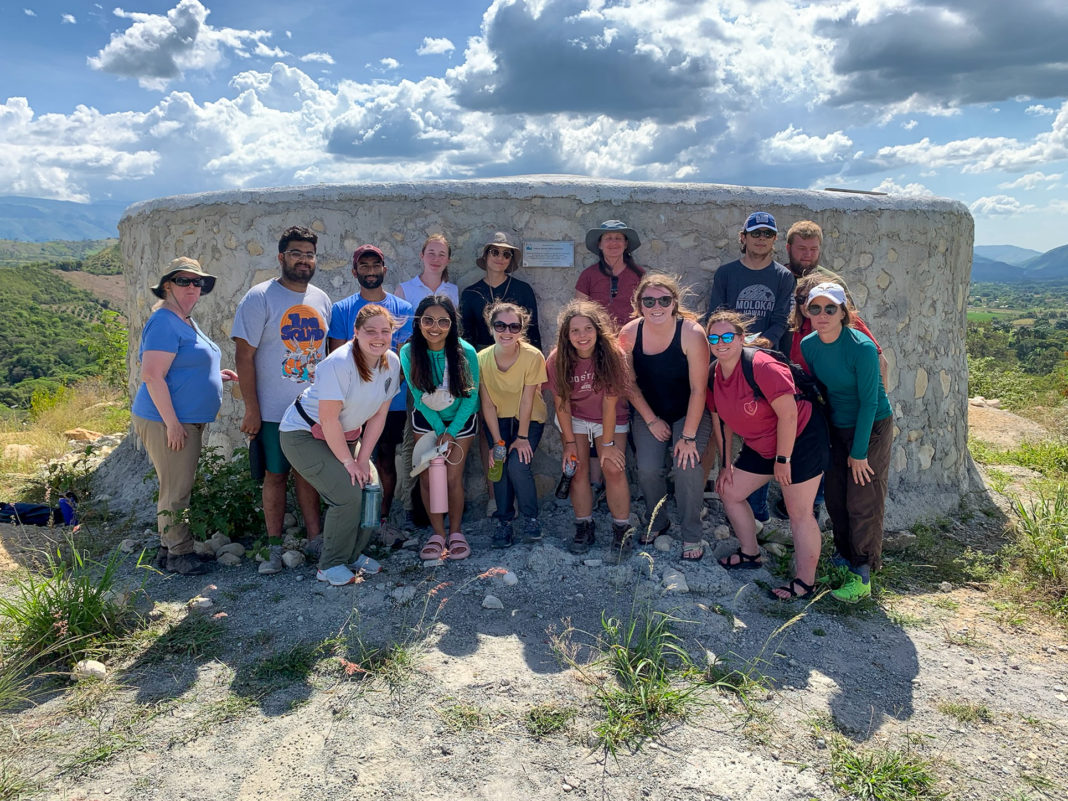Some local residents used to walk two or three hours just to get clean water. Now, it flows from a tap right outside their home.
Mercer continued its work bringing clean water to underserved communities in the Dominican Republic earlier this summer during a three-week Mercer On Mission trip.
The program was initiated in 2017 by the late Dr. Michael MacCarthy, associate professor of environmental and civil engineering, and has been continued by Dr. Natalia Cardelino, assistant professor of environmental and civil engineering, and Dr. Laura Moody, associate professor and chair of industrial engineering and industrial management. Mercer alumni Mónica Resto-Fernandez and Erin Brett served as consultants on the trip.
“I think one of the biggest benefits students got out of it was learning to be open and interact with these folks that live a completely different life from them,” Dr. Moody said. “For all of them, they stretched themselves in some way or another. They all learned that they can do more and do something different than what they are skilled at.”
Eleven students went on this year’s trip and rotated through three activities, mostly in the El Cercado area of the San Juan province.
Working alongside local experts and community members, the first group dug trenches, laid PVC piping and built spring boxes that routed clean water in the mountains to homes. The first half of the trip was devoted to repairing three existing spring boxes, and the second half involved bringing water to a community that had not had it in 20 years, Dr. Cardelino said. Ritij Sarvaiya, a rising junior neuroscience major on the pre-med track, said it was hard but very rewarding work.
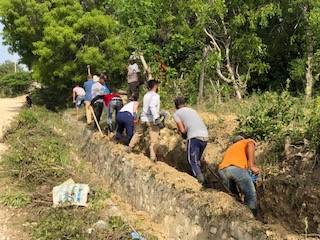
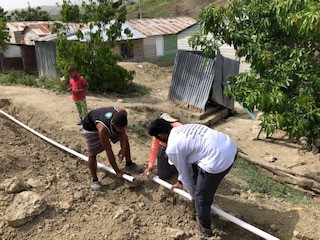
The second group was responsible for water testing. They analyzed samples for nitrates, pH and human contaminants such as E. coli, Dr. Cardelino said. The team evaluated water in communities that had been served in the past and in areas where new spring boxes were being built, Dr. Moody said. Using those results, changes could then be made to improve the water and make it safer, Sarvaiya said.
Dr. Moody led the third activity, which was a new aspect for this year’s trip. Seven communities have now been served through this Mercer On Mission program, and students conducted in-depth surveys with residents who now have access to clean water. With the help of an interpreter, they learned how to ask the community members questions in Spanish about their water access, how their life has changed and what concerns they have. By the end of the trip, most of the students were asking the questions pretty fluently and understanding the basics of the conversations, Dr. Moody said.
“Every student did every piece of it. On any given day, they were either doing construction, water testing or surveys,” she said. “Everybody learned a little bit about construction work and using local materials. They all learned a good bit about water testing and a good bit about doing surveys.”
The team also attended the dedication of an aqueduct system that was started in Los Caños during last year’s Mercer On Mission trip. Some of the residents had never had running water in their houses, and it was overwhelming to see their happiness and gratitude, Dr. Cardelino said.
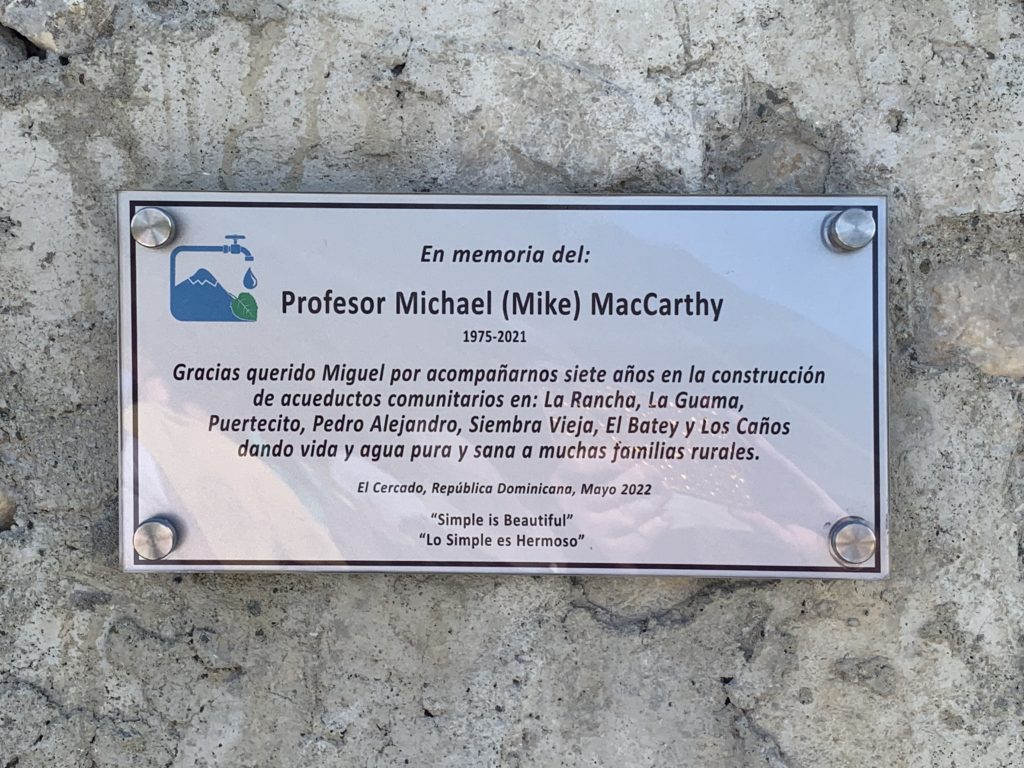
(1975-2021). Thank you dear Michael for joining us for seven years in the construction of community aqueducts in: La Rancha, La Guama, Puertecito, Pedro Alejandro, Siembra Vieja, El Batey, and Los Caños, giving life and pure and healthy water to many rural families. El Cercado, Dominican Republic, May 2022.” Photo courtesy Dr. Laura Moody
“We went to one of the taps, and they were dancing and splashing water at each other,” said Danielle Dailey, a rising senior majoring in industrial engineering. “It was just this pure joy that they had access to this water. It made me tear up because it was such a happy moment. Typically in the past, we never see a project fully completed. It made an impact to see what we were actually doing.”
The celebration included a tribute to Dr. MacCarthy, as community members and Mercerians spoke about him and the impact of his work. Plaques recognizing his service and dedication have been installed in two of the Dominican communities, Dr. Cardelino said.
“Working with the local community and seeing you can be impactful in your own way was very meaningful for the students,” she said. “We worked long days. The community members shared what little they had with us. The students felt part of the community; they felt accepted. You don’t always feel like a part of the community in the U.S.”
“The community in the Dominican Republic was really strong,” Sarvaiya said. “America is so individualistic, but here, it was a community. Everyone wanted everyone to succeed. Almost everywhere we went, there were people from different communities coming in to help because they knew the importance of clean water.”
Watching the community members get a lot done in a short amount of time was both educational and inspiring, Dr. Moody said.
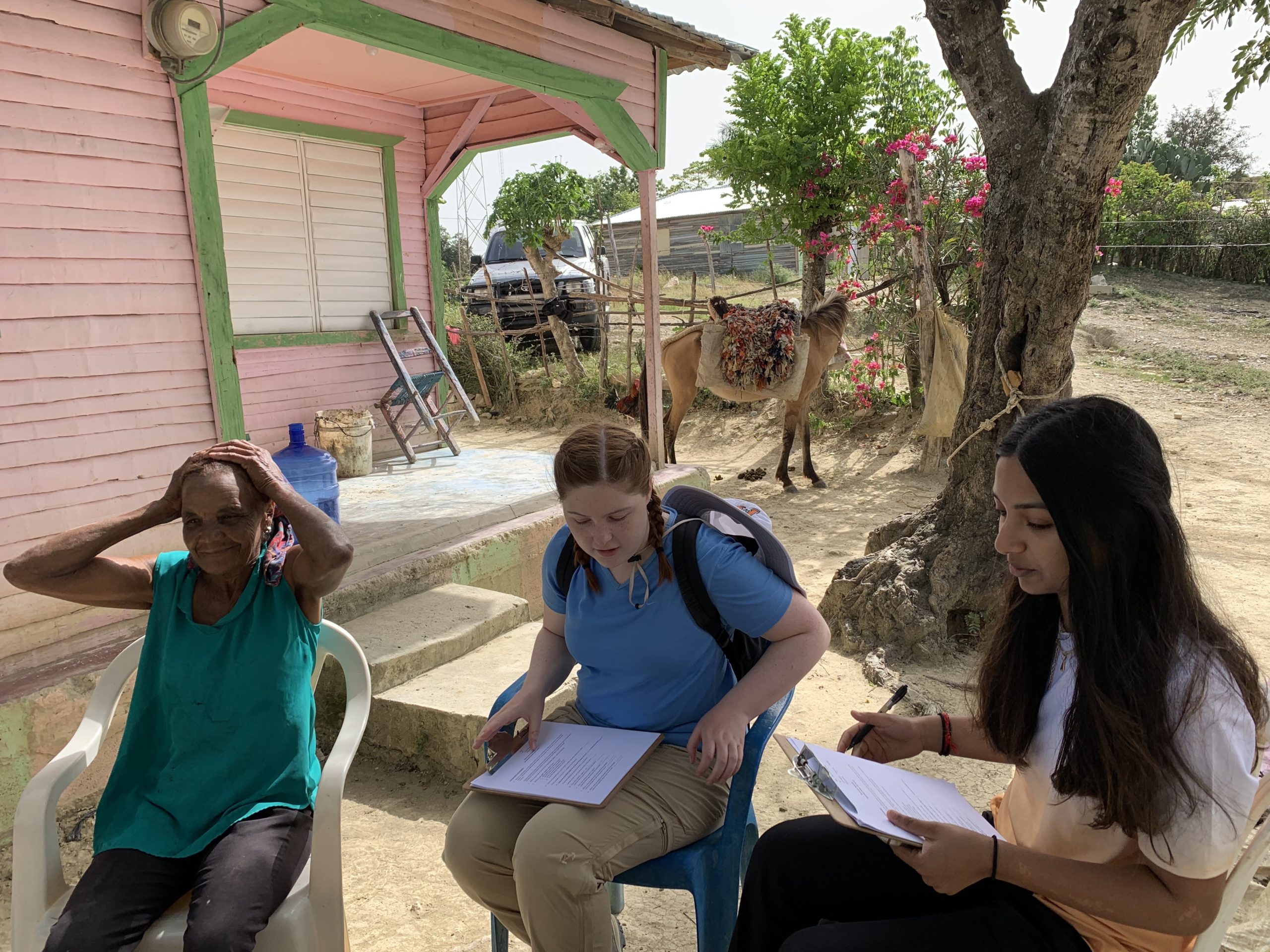
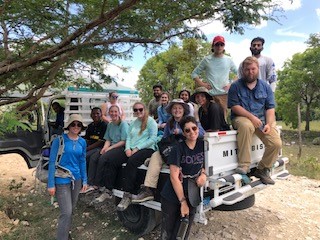
“From the people in El Cercado, I learned what can be done when communities come together to accomplish something. Every single water project we worked on, the starting point has been the community,” she said.
Upon arriving in the Dominican Republic, the Mercer group had a little time to explore and get to know the area, Dailey said. Outside their primary work, the students helped deliver food to about 60 households; visited a peanut butter factory; attended Sunday mass; toured a local school and later had a dance party with the students; had dinner in capital city Santo Domingo; and spent a day at the beach.
The students’ eyes were opened to how fortunate they are in the United States and how clean water is not always a guarantee in other parts of the world, Dr. Cardelino said.
Sarvaiya said the experience made him realize how much waste there is in the U.S. as well as how much he takes for granted. It also changed his mindset, making him want to adopt a more minimalistic, relaxed and adaptable approach to life. The trip cemented his goal of being a doctor in a rural area, and now he is considering eventually working in international health.
Dailey said it was overwhelming coming back home after being “off the grid” for three weeks, and she missed the simplicity she had experienced. The trip made her realize she might like to get involved in initiatives like Engineers Without Borders in the future.
“The growth there was in every single person on this trip was insane,” Sarvaiya said. “There’s always so much to learn. It will definitely give a life-changing view and change people’s career options. It made me realize I want to go out into different countries and help people.”
